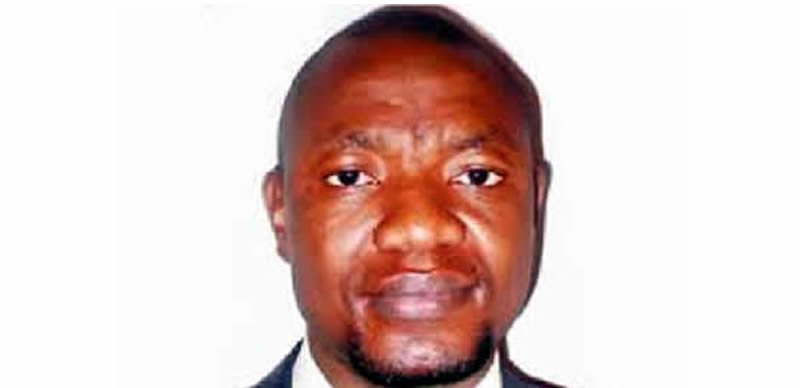
EARTH Day is an annual event on April 22 to demonstrate support for environmental protection. First held on April 22, 1970, it now includes a wide range of events globally undertaken by billions of individuals in more than 193 countries. This year’s Earth Day was commemorated on April 22, 2022, with the theme, “Invest in our planet.” Although it is over two weeks now since the celebration, the idea of investing in our planet is an imperative that touches on our everyday reality. This is because, with the onslaught of climate change, we are now living like endangered species.
I believe we are not doing enough to raise awareness about environmental protection and creating enough momentum in tackling the global climate crisis, which is getting worse by the day. It is time we asked ourselves whether we are part of the growing global drive and commitment to reach net-zero greenhouse gas emissions by mid-century. The goal is to keep the global temperature to well below 2 degrees Celsius, preferably to 1.5 degrees Celsius, compared to pre-industrial levels – in line with the Paris Climate Pact which Nigeria is a signatory. So, are we part of the emerging climate-neutral world?
With the official theme for this year’s Earth Day, we must start a conscious, concentric national effort to invest in our environment. However, we must not allow the concept to end at the abstract level. It must be real and connected to our everyday existence. This is why I am thinking of linking it to our failing power sector. With this, the global ‘race to zero’ will once again be emphasised while proffering some key solutions that will serve Mother Nature in good stead as regards delivering the greenhouse gas reductions needed by 2030 to meet the Paris Agreement. Meanwhile, in doing this we shall be meeting our power needs through renewable energy adoption.
The importance of renewable energy to climate change cannot be overemphasised as it minimises carbon pollution and has a much lower impact on our environment. We are once again reminded by the United Nations that the healthier our ecosystems are, the healthier the planet (and its people) will be. Hence, if investments are made to restore our damaged ecosystems, it will contribute to the global quest to ‘‘end poverty, combat climate change and prevent mass extinction.’’ While we find the energy to run our homes and businesses, we effectively clean the carbon emissions off our atmosphere. Carbon emissions – from agriculture, transportation and industry – have become not just a global burden but a national bugaboo.
Since unrelenting fuel scarcity and power outages have hit the country hard in the past couple of months, many a Nigerian has asked the natural question, where do we go for energy? The situation is not funny, it is killing, biting and damning. The president and his cabinet appear powerless. The technicians are in a quandary. The money spent on power generation is so humongous a waste that it would have been better if they were invested in renewable energy sources. But ironically, we are not discussing these sorts of green investments. While other nations of the world are getting ready to abandon fossil fuel, we still carry on as if we are not tired of dirty energy.
This year’s Earth Day raises a wake-up call. Historically, it is the first holy day which transcends all national borders, yet preserves all geographical integrities, spans mountains and oceans and time belts, and yet brings people all over the world into one resonating accord, is devoted to the preservation of the harmony in nature and yet draws upon the triumphs of technology, the measurement of time and instantaneous communication through space.
More so, because we are part of the global south. Our nation is one of the developing countries of this world that is at the receiving end of the climate emergency. We contributed the least towards global warming but we experience worse impact. Hence, there is a delicate line straddled by those who advocate for earth’s sustainability. We must demand far-reaching change without alienating the middle class whose active participation and political support are very essential to say the least. The greatest environmental insults are visited on the poor. Factories and power plants are located in the poorest neighbourhoods. Expressways are ploughed through the poorest neighbourhoods. Toxic waste dumps are situated in the poorest neighbourhoods. We can remember how such waste was dumped in Nigeria in the 80s at Koko Island, which became the landmark for environmental awareness in our country. But these problems tended not to affect the middle class and the upwardly mobile regions of the world.
Because the government does not have enough infrastructure for everybody to be grid-connected, let us invest more in off-grid green power. Off-grid refers to not being connected to a grid, mainly used in terms of not being connected to the main or national electrical grid. In electricity, off-grid can be standalone systems or mini-grids typically to provide a smaller community with electricity. Off-grid electrification is an approach to access electricity used in countries and areas with little access to electricity. So, off-grid renewable energy supply is the use of renewable sources like solar and wind to power these units. Actually, these systems can be more cost-effective than connecting to the grid in remote locations.
There are a couple of reasons why Nigerian public and private sectors should engage renewable energy at a time like this. For starters, ours is a country where more than 70 million power generators are in existence in most businesses and homes; and so, we need off-grid renewable power supply more than ever before, to augment the meagre supply from government grid while fighting climate change by reducing carbon emissions that naturally emanate from the fossil fuel burning generators.
Some years ago, the Federal Government announced plans to tackle inadequate power in the country with renewable energy generation to the tune of more than 2000 MW at the first phase and the establishment of a National Science Park akin to America’s Silicon Valley to develop home-grown technologies including solar panels. These are jumbo-sized visions of which I have yet to see any concrete action to make a reality. To start the journey, we need more interface with regional and international solar and renewable energy markets.
Considering the intensity of sunlight in our resource-endowed country, there is no quantum of energy we cannot generate from solar power. The 4,000 MW the government hoped to get from nuclear plant is a joke considering the risk involved in the project. As a matter of fact, experts avow that we can generate more than 6,000 MW just from mounting solar panels on the rooftops of designated houses in the country today.
With over 36 billion barrels of oil and 200 trillion cubic feet of natural gas, Nigeria has emerged as one of Africa’s biggest energy sectors, attracting significant levels of investment and driving project developments across the entire energy value chain. However, with global capital expenditure tightening due to the COVID-19 pandemic and international finance trends shifting from fossil fuels to renewable resources, our economic planners must think of integrating a multi-phased and resilient energy sector. Investments in the renewable energy industry should be prioritised because it is the duty we owe Mother Earth. We also owe our children a future that is free of pollution and an economy that would easily absorb the shock when the world finally moves away from fossil fuel.
Copyright PUNCH.
All rights reserved. This material, and other digital content on this website, may not be reproduced, published, broadcast, rewritten or redistributed in whole or in part without prior express written permission from PUNCH.
Contact: [email protected]





